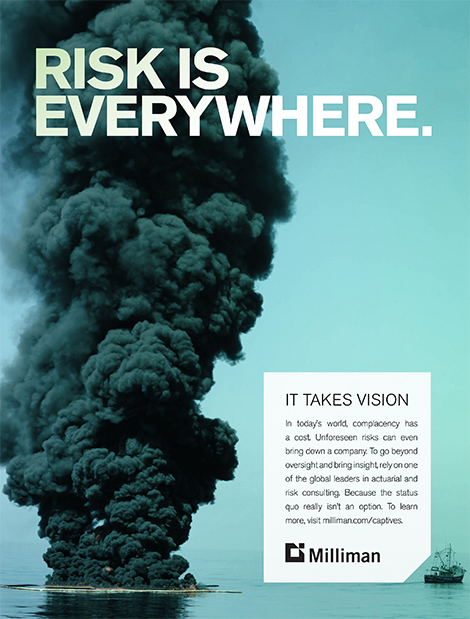In February 2023, Guernsey was confirmed as Europe’s most successful captive domicile. Ned Holmes examines what makes it an industry leader and what comes next
Even by its own high standards, it’s been an impressive 12 months for the Guernsey captive insurance industry.
The island has long been regarded as one of the world’s leading offshore domiciles, however, two recent landmarks have pushed it to new heights.
In November 2022, Guernsey celebrated 100 years since its first captive formation, while in February 2023, it was crowned as the largest European domicile – overtaking Luxembourg.
12 new licences and three surrenders in 2022 took Guernsey’s total tally to 201.
William Lewis, UK insurance representative for We Are Guernsey, says this latest landmark was not a specific target for the domicile, but was recognition of the hard work put in by the industry and affirmation that Guernsey “ticks all the right boxes”.
“The focus has been on our products, our services, and ensuring that Guernsey remains a leading jurisdiction that provides cutting-edge solutions and first-class servicing,” explains Christina Bell, head of captive and ILS insurance underwriting at Aon in Guernsey, and chair of the Guernsey International Insurance Association (GIIA)’s Captive Working Group.
Depth of talent
The island’s ongoing success is built on its experienced insurance community, which comprises nearly 1000 professionals from both global names and notable independents.
“The landmark is evidence of the depth of talent that Guernsey has to offer across the whole captive ecosystem,” says We Are Guernsey’s Lewis. “It’s not just the captive managers, it’s the lawyers, the accountants and everyone else.”
Aon’s Bell adds: “The experience and knowledge that we have on the island enables us to create bespoke solutions to individual problems. There is always going to be something that is specific to a client. Guernsey comes to the table and is able to provide answers. I don’t think this has ever been more obvious than in the current environment. There just isn’t the ability or the capacity in the commercial market. The focus is to build on alternative solutions such as insurance-linked securities or pension longevity. The ability and the capability for that is here in Guernsey.”
Innovation
The Guernsey captive industry’s willingness and capacity to offer solutions to emerging problems is reflective of what Justin Upson, describes as the domicile’s “history of innovation”. Upson is a director at Robus Guernsey and part of the GIIA’s Captive Working Group.
In 1997, Guernsey pioneered the introduction of protected cell companies (PCC). Nine years later it introduced incorporated cell companies (ICC). More recently, a Memorandum of Understanding between Guernsey and China has started to yield results. China has also seen great success with the establishment of its own ILS and pension-longevity structures.
In 2020, Guernsey flexed its muscles as an innovator once again with the introduction of a pre-authorisation pilot scheme for insurance cells.
As Robus Guernsey’s Upson explains: “With hardening markets that came through in 2020, the Guernsey Financial Services Commission introduced the Pilot Fast Track Scheme, which provided the pre-authorisation of insurance cells that were subject to meet certain criteria.
“The Pilot Fast Track Scheme allows a cell to be authorised within 48 hours, subject to customer due diligence into the Commission within a two-week period. This has proved hugely successful for the domicile.”
He adds: “From what we saw, it provided a solution for clients who were faced with a lack of capacity and increased premium spend – particularly around the professional indemnity market in 2020 when rates were going through the roof. During this time, there was a lack of willingness from the market to go down to lower levels.”
Regulation
Guernsey benefits greatly from its close proximity to the UK and mainland Europe, yet it is not an EU member. Therefore, it is not subject to Solvency II — an advantage from a regulatory perspective.
“I’ve been in this industry for more than 35 years. I see the strength of the regulator in Guernsey,” says Aon’s Bell. “It’s got robust yet proportionate regulation. It’s clear that the regulator and the domicile’s captive industry are aligned in their goals to see Guernsey flourish.”
Robus Guernsey’s Upson highlights the importance of the “very strong relationship” between the regulator and the industry. “The proportionality, in terms of regulation, is so critical,” he notes.
“We’ve got the industry body, GIIA, and we’ve got a large pool of seasoned professionals and our independent non-executive directors, who bring a lot of value. Ultimately, it’s all about being knowledgeable and commercially-orientated. Having an open mind to regulation is always going to help.”
We Are Guernsey’s Lewis, who has been interacting with Guernsey’s regulators for more than 20 years, also believes it’s a helpful environment for new clients. He says: “Being able to approach Guernsey regulators to raise concerns is helpful.”
Good timing
The growth in demand for alternative risk management structures is showing no signs of slowing down. Guernsey’s new place as Europe’s biggest captive domicile puts it in a fantastic position to attract prospective clients – particularly those that might be turning their attention to captives for the first time.
“As Oscar Wilde said: ‘There is only one thing in the world worse than being talked about, and that is not being talked about’,” affirms We Are Guernsey’s Lewis.
He adds: “Companies are going to be looking at captives more than they have done for some years, and when they do, most will do a feasibility study. Right now, whether it’s because of the location, what it offers, the experience of the staff, or the regulatory environment, it seems Guernsey is ticking all the right boxes.”
Despite the domicile’s recent accolades, there is a determination to keep pressing forward.
“We won’t be resting on our laurels,” says Aon’s Bell. “It’s a case of building upon our proven track record – to ensure that Guernsey is future proofed.”
She adds: “Guernsey has continued to evolve and that’s not going to change. We are always working on new initiatives, niche solutions and services, and we’ll continue to innovate and promote the captive proposition.”
A bright future
However, how can continued growth be measured if the domicile in question is already Europe’s most successful?
Aon’s Bell affirms: “Guernsey is very much at the forefront of sustainable finance. GIIA introduced the world’s leading ESG framework with an accreditation kitemark back in 2021. It was created to manage ESG opportunities and risks, and to deliver a positive ESG impact.”
“Guernsey’s a member of the UN Sustainable Insurance Forum and GIIA is a signatory to the UN Sustainable insurance principles, so the sustainable development goals are very much aligned with our financial products and services.
“Beyond that, we will continue to expand the connectivity between captives and capital. We’ll also focus on providing the solutions that are needed in the hard market, such as additional capacity for programmes. Alternative solutions are very much in demand too.”
Robus Guernsey’s Upson says: “We will continue to provide solutions for gaps in coverage. That’s not just limited to what has been quite topical in terms of cyber, director and officer, and professional indemnity, but it’s going to include property damage/business interruption and general liability as well.”
He adds: “I think there’s still a lot of growth that can be achieved — it’s a case of continuing to innovate. Now we’ve reached this landmark, Guernsey will see an increase in business opportunities.”
Succession planning
If Guernsey wants to keep its place at the top in Europe, it will need to find a solution to the talent gap — a key challenge facing the global captive industry. To counteract this the domicile is placing an emphasis on succession planning.
“We’re making sure that we are bringing new talent up through the ranks,” explains Aon’s Bell. “Talent development has been a considerable focus — so much so that it’s led to the recent launch of the Guernsey Certificate and Diploma in International Insurance Management initiative. We’re going to have considerable interest [in this initiative]. It will be something that helps to train individuals before they even reach their employers.”
“[The initiative will be] fundamental to the continued success of the industry,” says Robus Guernsey’s Upson. “I look at it as a need to share knowledge and experience.
“The captive industry has a need to bring up the next run of talent, and hopefully, it will provide some future proofing for the next generation,” he concludes.





